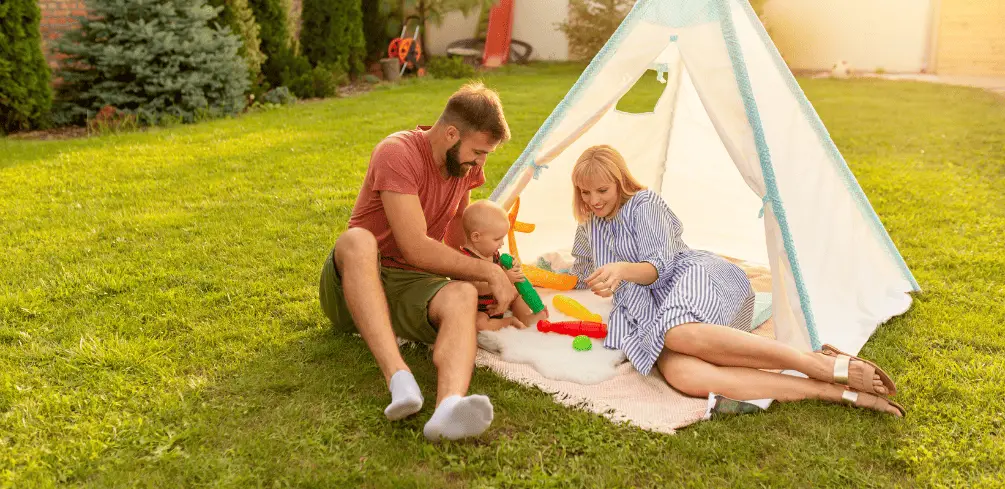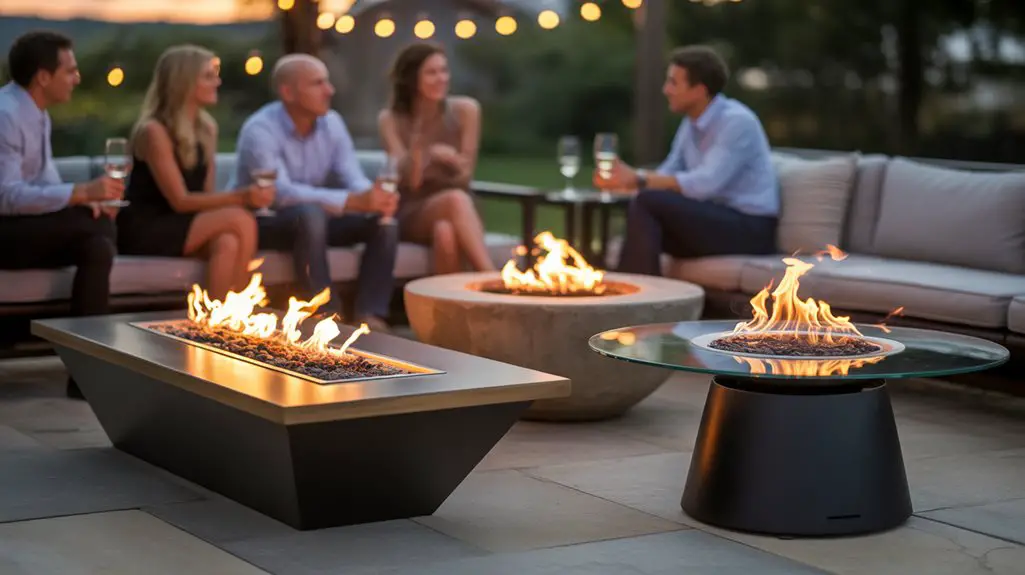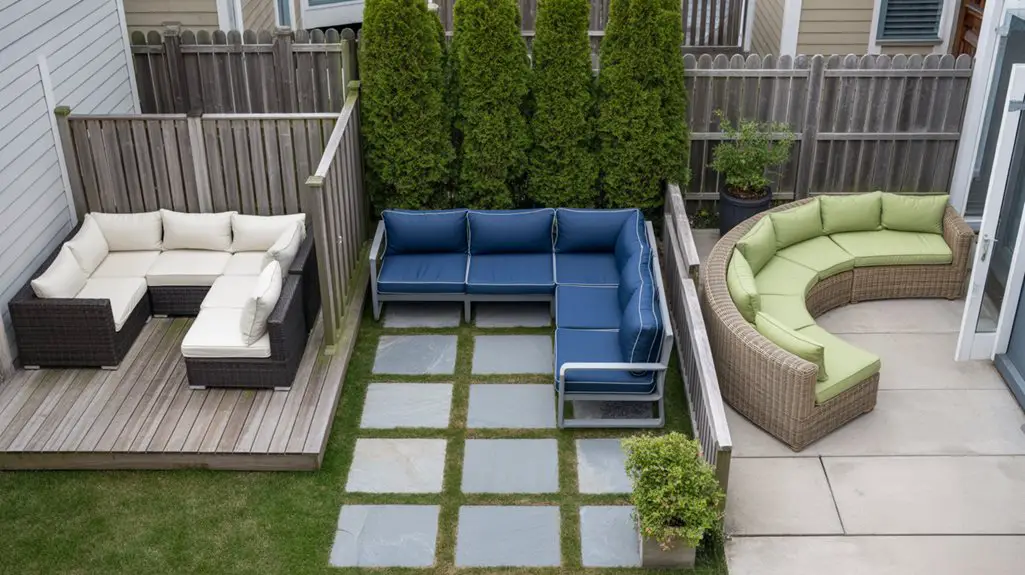As a tenant, you might be wondering if you are legally entitled to use the backyard of your rental property.
This is an important aspect to consider when renting a home or apartment with outdoor spaces, as it can significantly impact your enjoyment and utilization of the property.
Understanding your rights and responsibilities regarding outdoor spaces in relation to rental agreements is essential, as it will enable you to make well-informed decisions and potentially avoid conflicts with landlords.
In this article, we delve into the legalities surrounding tenants’ use of backyards, examining both the rights and responsibilities of landlords and tenants in these situations.
Furthermore, we provide tips for creating harmonious outdoor living spaces that cater to everyone’s needs while adhering to relevant laws and regulations.
Understanding Rental Agreements and Outdoor Spaces

When it comes to rental agreements and outdoor spaces, it’s crucial to know your rights as a tenant and fully understand the ins and outs of using that backyard for your enjoyment.
The terms of use for outdoor spaces such as backyards, gardens, or patios are usually outlined in the lease agreement, which should clearly specify any restrictions or responsibilities related to these areas.
Common aspects covered in lease clauses may include outdoor maintenance responsibilities, pet policies, shared amenities with other tenants (such as common areas), and garden agreements.
As you navigate the legal complexities surrounding your rental’s backyard usage, be sure to pay close attention to specific provisions within the lease document.
For example, if your landlord requires tenants to maintain the yard regularly by mowing the lawn or trimming bushes, this obligation should be explicitly stated in writing.
Similarly, if there are limitations on pet ownership or requirements for pets to be leashed when outside, these details must also be included.
Keep an eye out for any stipulations regarding shared amenities like BBQ grills or picnic tables – if they’re available for all residents within a multi-unit property but subject to certain rules or guidelines.
Lastly, some landlords may have garden agreements in place that allow tenants who enjoy gardening activities such as planting flowers or growing vegetables access designated plots within the backyard area.
These arrangements can be mutually beneficial since well-maintained gardens enhance property values while providing tenants with opportunities for relaxation and recreation outdoors.
Review your lease carefully before signing it so you’re aware of any pertinent details pertaining to outdoor space usage; doing so ensures both parties’ expectations are set forth clearly from the start and minimizes potential conflicts down the road.
Rights and Responsibilities of Landlords

As a landlord, it’s essential to understand your rights and responsibilities, especially since over 36% of US households are occupied by renters.
The relationship between landlords and tenants is governed by various federal, state, and local laws that stipulate the obligations of each party.
Understanding these legal provisions is critical in ensuring smooth property management and avoiding potential disputes with tenants. Key areas where you need to be knowledgeable include property maintenance, lease violations, security measures, eviction procedures, and rent control.
Property maintenance is a crucial responsibility for landlords as it ensures the habitability of the rented premises.
This entails regular inspection of the property to identify any issues that may compromise its structural integrity or pose health hazards to occupants.
Additionally, you must take reasonable steps to address all legitimate repair requests from tenants in a timely manner.
In case of lease violations by tenants, such as unauthorized alterations or non-payment of rent, you have the right to initiate eviction proceedings following due process as stipulated by law.
It’s important to stay abreast with state-specific rules governing evictions since failure to adhere could result in legal repercussions.
To protect both your investment and your tenant’s well-being, implementing appropriate security measures is an essential duty as a landlord. This includes providing adequate lighting in common areas, installing secure locks on doors and windows, and maintaining functional fire safety systems.
Moreover, being aware of rent control regulations within your jurisdiction will help prevent misunderstandings regarding rent increases while also safeguarding your financial interests as a property owner.
By embracing these rights and responsibilities diligently and maintaining open communication lines with tenants, you can foster harmonious relationships that contribute positively towards effective property management while remaining compliant with relevant laws.
Rights and Responsibilities of Tenants

Knowing your rights and responsibilities as a renter can make your renting experience more enjoyable and help you avoid potential conflicts with your landlord.
As a tenant, it’s crucial to understand the various rules and regulations that come with renting a property, including those related to shared spaces like backyards.
Tenant etiquette is essential in maintaining healthy relationships with your landlord and neighbors.
- Noise regulations: Be aware of any noise restrictions or quiet hours outlined in your lease agreement or governed by local ordinances. This includes keeping the volume of music, conversations, or gatherings at a reasonable level so as not to disturb neighbors or violate any rules.
- Pet policies: If you have pets, ensure that you adhere to any pet policies listed in the lease agreement, such as weight limits or breed restrictions. Keep in mind that some properties may require additional deposits for pets, and always remember to clean up after your animals.
- Shared amenities: When using shared amenities like backyards, pools, gyms, or laundry facilities within the building or complex, follow posted rules and guidelines concerning capacity limits and time slots for usage when applicable – essentially respecting other tenants’ rights to use these areas too.
It’s also important to be mindful of maintenance duties required by tenants according to their lease agreements – this can range from basic cleaning tasks like taking out the trash on designated days to more specific requirements such as lawn care if applicable in case of backyard access for tenants.
Additionally, when addressing issues related to shared outdoor spaces like backyards (e.g., disputes with neighbors), communication is key: Always approach these situations respectfully and professionally while maintaining open lines of dialogue with both landlords and fellow residents alike.
By understanding your rights and responsibilities as a tenant regarding using shared spaces like backyards – alongside adhering to general tenant etiquette – you pave the way for harmonious living experiences all around!
Tips for Creating a Harmonious Outdoor Living Space

Imagine yourself relaxing in a beautifully designed outdoor living space that promotes harmony and tranquility while also respecting your neighbors’ peace and privacy.
Creating such an environment requires consideration of shared gardening, outdoor etiquette, neighborly boundaries, pet considerations, and seasonal maintenance.
As a tenant with access to a backyard or other shared outdoor spaces, it’s essential to understand the rights and responsibilities associated with communal areas.
To foster a harmonious outdoor living space for everyone’s enjoyment, it’s important to maintain good communication with your neighbors and landlord regarding shared gardening projects or changes to landscaping.
Discussing planting arrangements or design elements ahead of time can help prevent disputes over property lines or encroachments on neighborly boundaries.
Additionally, adhering to proper outdoor etiquette by keeping noise levels at reasonable decibels during designated quiet hours will contribute greatly towards maintaining positive relationships with those around you.
In terms of pet considerations, ensure that pets are supervised when outside and promptly clean up after them so as not to inconvenience others sharing the space.
Seasonal maintenance plays a crucial role in preserving an inviting atmosphere within your backyard sanctuary.
This may involve tasks such as raking leaves, trimming branches or hedges encroaching onto pathways or neighboring properties, clearing snow from walkways during winter, and regular upkeep of communal furniture such as benches or tables.
By taking responsibility for these duties – individually or collaboratively with fellow tenants – you demonstrate respect for the property and those who share it with you.
Through proactive communication about expectations surrounding backyard use coupled with diligent attention towards maintaining its aesthetic appeal year-round, tenants can successfully create an idyllic retreat where all parties feel welcome and respected.
Frequently Asked Questions

Can tenants install outdoor amenities, such as a playground, in the backyard without the landlord’s permission?
You must obtain your landlord’s permission before installing outdoor amenities like playgrounds or pools, as backyard safety and proper placement of outdoor furniture are crucial. Consult your lease agreement for specific terms and conditions.
Are there any restrictions on the types of plants a tenant can do in the backyard of a rental property?
Gardening restrictions may apply, including plant variety limitations and exotic plant policies. Prioritize landscaping liability and adhere to soil care guidelines. Consult your lease agreement or landlord for specific terms and conditions.
How can tenants ensure their privacy in a shared backyard?
To ensure privacy in a shared backyard, consider implementing privacy solutions such as fences, screens, or hedges. Additionally, establish shared etiquette with your landlord and fellow tenants to respect each other’s personal space.
Can a tenant be held responsible for damages to the backyard caused by natural events, such as storms or tree falls?
You may be held liable for damages caused by natural events if you’ve neglected tree maintenance responsibility. Consider renters insurance coverage and storm-proofing tips to avoid weather-related disputes with your landlord.
Is it possible for tenants to negotiate a rent reduction if the backyard is poorly maintained due to the landlord’s negligence?
As you navigate the labyrinth of negotiating tactics, wield landlord responsibilities as your compass. Certainly, it’s possible to negotiate a rent reduction for a poorly maintained or unusable backyard due to negligence.
Conclusion
In conclusion, it’s crucial for tenants and landlords to understand their rights and responsibilities for maintaining a harmonious outdoor living space. By respecting each other’s boundaries and rental agreements, tenants can enjoy their backyard without legal complications.
Remember to stay informed about your rights, communicate openly, and follow the rules in your rental agreement. This mutual understanding and respect will ensure that everyone can fully appreciate their shared outdoor spaces.




